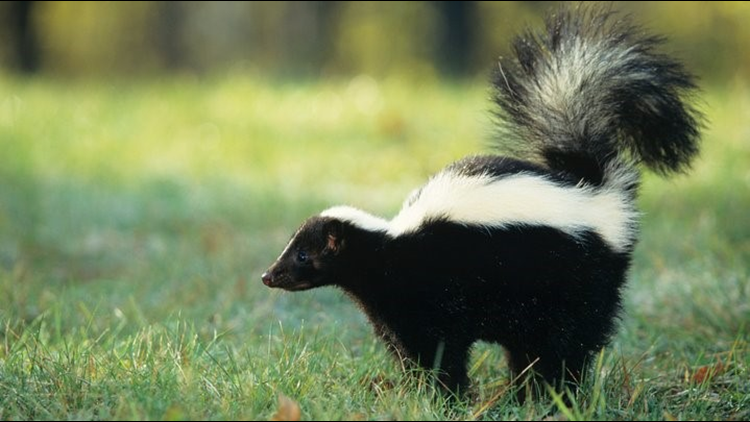BENNETT, Colo. — A skunk that got into a scuffle with a dog in Bennett tested positive for rabies, according to an announcement Friday from the county health department.
The is the first animal to test positive for rabies in Adams County in 2019.
The dog is up-to-date on its vaccinations and is receiving the necessary veterinary attention.
The news comes one day after a skunk found near Interstate 70 and Paradise Road in Jefferson County also tested positive for rabies.
Skunks, bats and raccoons most often test positive for rabies in Colorado. Foxes and some other wild mammals also occasionally test positive for the disease.
Rabies is spread primarily by saliva through the bite of a rabid animal. Once symptoms of rabies infection appear, there is no cure and the infection is almost always fatal. People that have been exposed to rabies can receive treatment to prevent illness.
Colorado in 2018 had 325 wild animals that tested positive for rabies -- 12 in Adams, Arapahoe and Douglas counties. Those three counties make up the Tri-County Health Department.
The health department said the best way to protect domestic animals is through routine rabies vaccinations.
The Tri-County Health Department also offers the following tips:
- Be aware of bats, skunks and raccoons out during the day. This is abnormal behavior and these animals should be avoided.
- Be aware of areas that can be suitable habitat for skunks, such as dark holes, under buildings and under equipment.
- Do not feed wild animals or allow pets around them.
- Be sure to teach children to stay away from wild animals.
- Avoid leaving pet food outside, as that may attract a wild animal.
- Contact a veterinarian right away if any animals/pets are bitten or scratched by any wild animal, particularly skunks, bats, foxes or raccoons.
- If animals/pets exhibit any dramatic behavioral changes, contact a veterinarian as soon as possible. Isolate and avoid contact with these animals if possible.
- If been bitten or scratched by a wild animal, contact a physician and local health department right away.
Immediately report a suspicious or dead animal or an animal bite to Tri-County Health Department at 303-220-9200 or a local health department. For more information about rabies, please visit: tchd.org/rabies.
SUGGESTED VIDEOS | Local stories from 9NEWS



